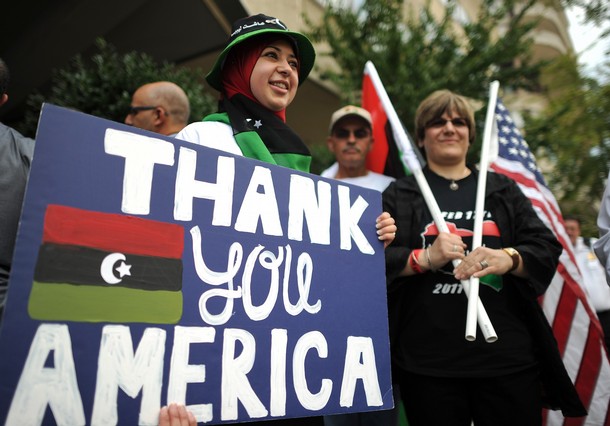
From Nicholas Burns, the Boston Globe: NATO’s Libya venture took much longer to succeed than the administration expected. Until 10 days ago, many, including myself, worried about a stalemate for NATO forces in Libya. And the president was subjected to an unusual, highly partisan, and unreasonable assault by Congress on his constitutional right to commit US forces in the first place. Yet Obama persisted, and it has paid off.
It is only right, then, to applaud his steadfastness and patience as the rebel forces achieved their spectacular lightning strike on Khadafy – first in Zawiya and then Tripoli – over the last few days.
There can be no doubt that the United States made a critical difference in the more effective NATO combat operations over the last few weeks. While the National Transitional Council and the people’s army deserve the largest measure of credit for bringing down the Khadafy regime, the United States and its NATO allies made a unique and invaluable contribution that was critical to the success we are witnessing.
Which early lessons can we draw from these events?
First, US leadership in the world, and in particular in the Middle East, remains indispensable. Without the president’s dogged pursuit of Khadafy, against loud and vociferous critics at home, it is unlikely the rebels would be poised to bring down one of the Middle East’s most brutal dictatorships. This should give pause to those on the extreme right and left of the American political spectrum who preach isolation and retreat at a time when our fortunes are more tied up with the rest of the world than ever before. It is in our interest to continue to engage internationally where it matters most. . . .
Nicholas Burns is professor of the practice of diplomacy at Harvard Kennedy School. He was undersecretary of state for policy from 2005 to 2008. (photo: Getty)
Image: getty%208%2024%2011%20TNC%20embassy%20DC.jpg
